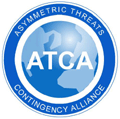
Sovereign Wealth Funds -- From
Villains to White Knights?
Implications for Western Governments and Financial
Institutions
London, UK - 8th April 2008, 11:58 GMT
Dear ATCA Colleagues
[Please note that the views presented by individual contributors
are not necessarily representative of the views of ATCA, which is neutral.
ATCA conducts collective Socratic dialogue on global opportunities and threats.]
It was immensely valuable to participate in the recent Sovereign
Wealth Funds (SWF) summit jointly organised by the OECD and the City of
London. The subject of SWFs is increasingly significant and includes several
thorny issues. We are grateful to the distinguished ATCA contributor, John
Willman, UK Business Editor, Financial Times, for his welcome submission
to initiate this crucial Socratic dialogue.
In regard to the immediate re-capitalisation issues facing large financial
institutions and the role of SWFs, John points out, "the first big
rescue from SWFs came in November when Citigroup of the US raised USD 7.5bn
from the Abu Dhabi Investment Authority. In December, Switzerland's UBS
raised CHF 11bn from the Government of Singapore Investment Corporation
and CHF 2bn from a Saudi Arabian investor. It was followed by Morgan Stanley,
which raised USD 5bn from China Investment Corporation. Just before Christmas,
Singapore's Temasek agreed to invest USD 4.4bn in Merrill Lynch shares with
an option to buy another USD 600m by the end of March. And as already mentioned,
there was the USD 5bn invested in Citigroup and Merrill by the Kuwait Investment
Authority."
Dear DK and Colleagues
Re: Sovereign Wealth Funds -- From Villains to White Knights? -- Implications
for Western Governments and Financial Institutions
A quick check on the Factiva media database shows that the first mention
of sovereign wealth funds in the business press was in late 2006. But it
was less than a year ago that the funds really impinged on the public consciousness,
with all but 11 of the 4,926 mentions revealed by my search coming after
April 1, 2007.
[CONTINUES]
[ATCA Membership]
John Willman
John Willman was appointed UK Business Editor of the Financial Times in
April 2006, with responsibility for a 15-strong team of specialist industrial
reporters and the FT's unique network of British regional correspondents.
Joining the FT in 1991, he has held several positions, including chief leader-writer,
banking editor, consumer industries editor, features editor and public policy
editor. His first jobs in journalism were on Which? magazine and Assessment.
Before that, he was an economics teacher. In the Business Journalist of
the Year awards in March 2002, John was named the winner in the banking
category. He was Financial Journalist of the Year at the 2001 British Press
Awards and winner of the Norwich Union Healthcare/Medical Journalists' Association
Awards in 1998. John has written and contributed to several books, including
the annual Lloyds TSB Tax Guide, The Which? Guide to Planning and Conservation,
The Major Effect and A Better State of Health. He has extensive broadcast
experience and has appeared frequently on BBC TV and radio, Sky and CNN.
Married and with three children, John graduated from Cambridge University
in 1971 with a first-class degree in social and political sciences.
[ENDS]
To reflect further on this, please click here
and read views as well as respond directly within the online forum.
We welcome your thoughts, observations and views. Thank you.
Best wishes
ATCA: The Asymmetric Threats
Contingency Alliance is a philanthropic expert initiative founded
in 2001 to resolve complex global challenges through collective
Socratic dialogue and joint executive action to build a wisdom
based global economy. Adhering to the doctrine of non-violence,
ATCA addresses asymmetric threats and social opportunities arising
from climate chaos and the environment; radical poverty and microfinance;
geo-politics and energy; organised crime & extremism; advanced
technologies -- bio, info, nano, robo & AI; demographic skews
and resource shortages; pandemics; financial systems and systemic
risk; as well as transhumanism and ethics. Present membership
of ATCA is by invitation only and has over 5,000 distinguished
members from over 120 countries: including 1,000 Parliamentarians;
1,500 Chairmen and CEOs of corporations; 1,000 Heads of NGOs;
750 Directors at Academic Centres of Excellence; 500 Inventors
and Original thinkers; as well as 250 Editors-in-Chief of major
media.
The Philanthropia, founded in 2005, brings together over
1,000 leading individual and private philanthropists, family offices,
foundations, private banks, non-governmental organisations and
specialist advisors to address complex global challenges such
as countering climate chaos, reducing radical poverty and developing
global leadership for the younger generation through the appliance
of science and technology, leveraging acumen and finance, as well
as encouraging collaboration with a strong commitment to ethics.
Philanthropia emphasises multi-faith spiritual values: introspection,
healthy living and ecology. Philanthropia Targets: Countering
climate chaos and carbon neutrality; Eliminating radical poverty
-- through micro-credit schemes, empowerment of women and more
responsible capitalism; Leadership for the Younger Generation;
and Corporate and social responsibility.
Intelligence Unit | mi2g | tel +44 (0) 20 7712 1782 fax +44
(0) 20 7712 1501 | internet www.mi2g.net
mi2g: Winner of the Queen's Award for Enterprise in the category
of Innovation
|

